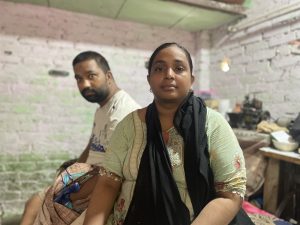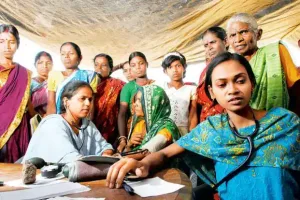Malnutrition, Poor Rural Public Health Infrastructure Behind Infant and Maternal Deaths In Maharashtra
- Priyanka Tupe
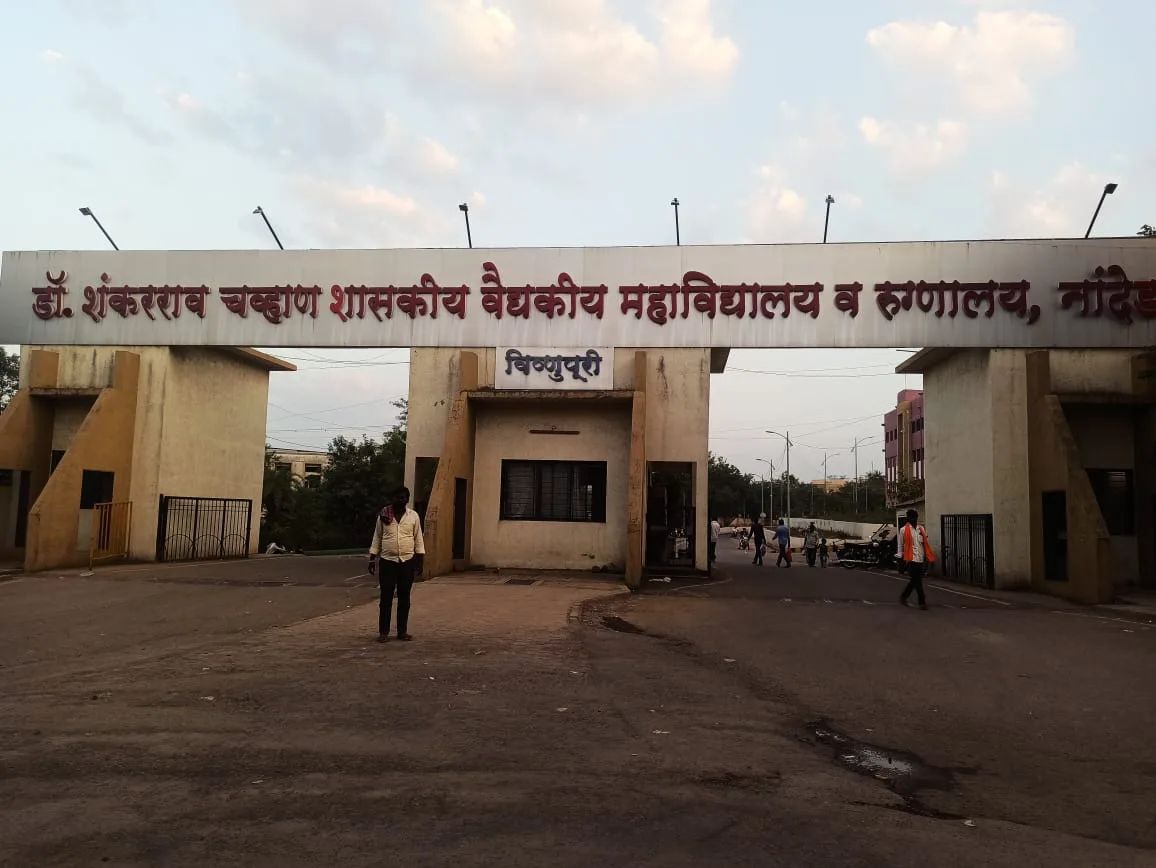
Sunita Sahebrao Dandekar (28), a Dalit woman from Kharvad village in Hingoli district in the Marathwada region of Maharashtra had to be rushed to Dr. Shankarrao Chavan Government Medical College and Hospital (SGMCH), 100 kilometres away in Vishnupuri in the neighbouring district of Nanded on 5 October after she complained of severe stomach pain and itching. The Gramin Jilha Rugnalay (rural district hospital) at Hingoli had no expert doctors at the time to perform a critical delivery and the Natal Intensive Care Unit (NICU) was ill equipped to deal with pregnancy related complications.Dandekar delivered a pre-term baby boy the next day. Two days later, the baby died.
“Pan Vishnupurila jayacha tari kay fayada zala? Maza lekaru gelach (What did we achieve by going to Vishnupuri? I lost my child anyway)”, she says in a voice filled with agony. Apart from the grief of losing her baby, Dandekar, a mother of three daughters, is also anxious about the taunts and continuing pressure from her in-laws to bear a son.
Dandekar’s baby was among the 31 children who died in the SGMCH in one week between 30 September to 7 October; 22 of these were new born babies. Of these, 17 babies were underweight at the time of the birth. 10 babies were born pre-term and 8 out of these preterm babies were suffering from respiratory distress syndrome according to the press notes released by the SGMCH. Since then, 108 more deaths have been reported in the SGMC, as per news reports. The hospital itself has stopped releasing data on deaths since October 3. Among those who died were 14 men, 11 women and one transgender person. In the last couple of months, the state has seen a spate of deaths in public hospitals in Chatrapati Sambhaji Nagar (Aurangabad) and Thane.
“Respiratory distress syndrome is quite common in pre-term and underweight babies. Their lungs are not developed enough to breathe by themselves which causes respiratory distress,” a neonatal specialist in Nanded district told Behanbox. Such babies need extraordinary care with neonatal specialists and trained nurses within the NICUs.
There was a severe shortage of functioning warmers for pre-term babies at the SGMCH. “The SGMCH has only 24 warmers, while there were 72 babies who needed them. So they cramped 3 to 4 babies in one warmer which led to them being infected”, the neonatal specialist added.
A doctor who was serving as a NICU in-charge on the day we visited the SGMCH on the 8 October, refused to comment on the availability of warmers at the hospital and asked us to speak to the medical superintendent Dr. Ganesh Manoorkar, but we are yet to receive a response from him. However both news reports and public health activists in Nanded told us that while the hospital has more than 50 warmers but only 24 were in working condition.
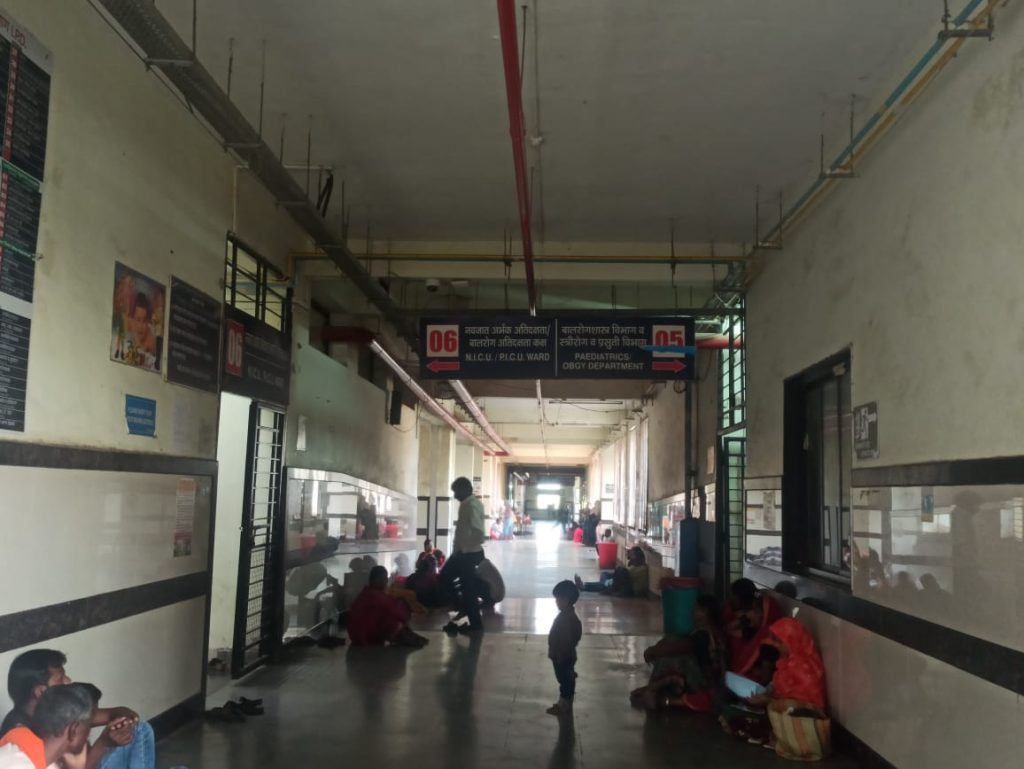
The public healthcare crisis that Maharashtra is witnessing currently is an outcome of the an inadequate and overburdened public healthcare system. Low budgetary allocations has meant severely understaffed and ill- equipped primary, tertiary and district hospitals indicating an overall lack of political will, say the many public health experts we spoke to.
Doctors working in public healthcare are equally concerned about the inadequate infrastructure which puts a lot of pressure on the frontline staff. “Ever since the government has announced all the treatments, surgeries completely free, there has been a massive increase in patients seeking treatments in the government hospitals. But infrastructure and human resources have not increased in proportion which creates a pressure not only on the doctors but on the overall ecosystem”, said a doctor working at SGMC on the condition of anonymity.
“This is a 500 bed capacity hospital which is now treating at least 1200-1300 patients everyday. It is inconvenient for patients but we try to save every life. We don’t send patients back home because of insufficient infrastructure.”
Hunger and Malnutrition
Malnutrition is a significant factor in the rising patterns of pre-term deliveries and neonatal mortality in Maharashtra. “There are multiple reasons, but one of the important contributing factors is the inadequate nutrition for the mother and child. It’s difficult for women from lower economic backgrounds to get good nutritious food. Naturally, the mother’s health impacts the health of the baby and this increases the number of severely malnourished children ”, a paediatrician practising in Mumbai told Behanbox.
All through her pregnancy, Sunita Dandekar did not receive any food grain under the Poshan Aahar, a central government scheme that gives free food grains such as wheat, rice and chickpeas to pregnant women from lower socio-economic backgrounds. Dandekar does not have an Aadhar card and the Anganwadi worker told her that she was ineligible for the scheme.
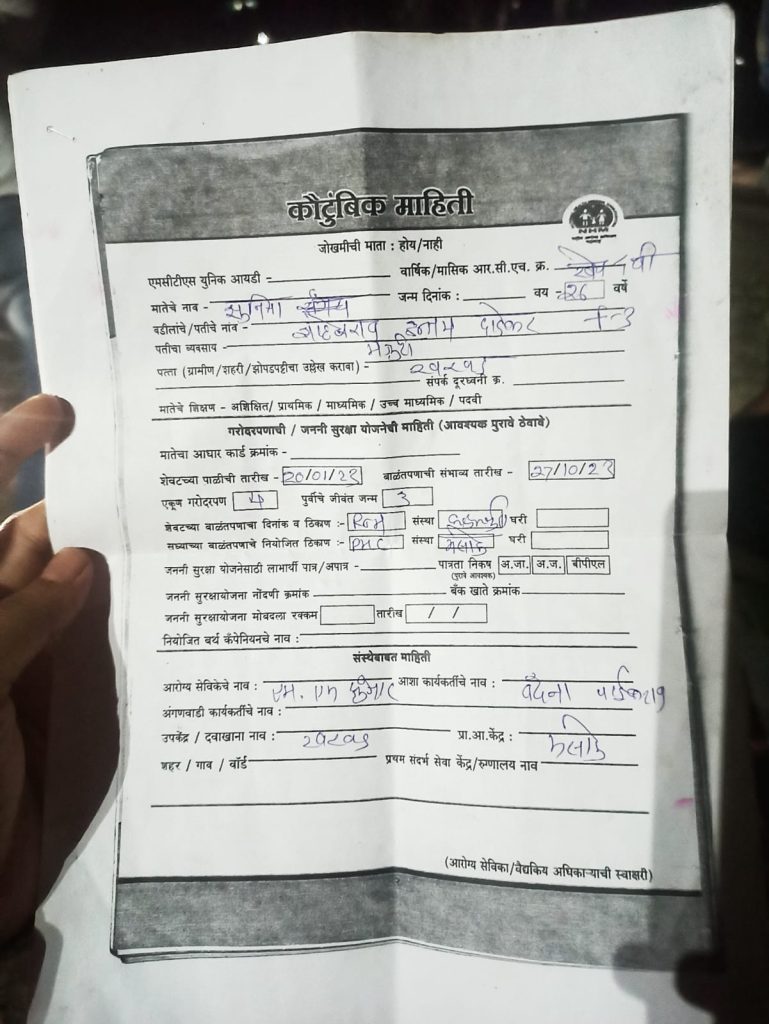
“Mang ek dana pan milala nay, mala vatala aadhar card nahi tar aapun bi kasa magava? Mi unpad bai, shalecha tondach baghitala nay, aadhar card tari kon denar mala? (I didn’t get food for any month while I was pregnant. After the Anganwadi worker told me about the need for the Aadhar card, I felt too embarrassed to ask for food grains again. Who will give an aadhar card to an illiterate person like me?”, asked Sunita.
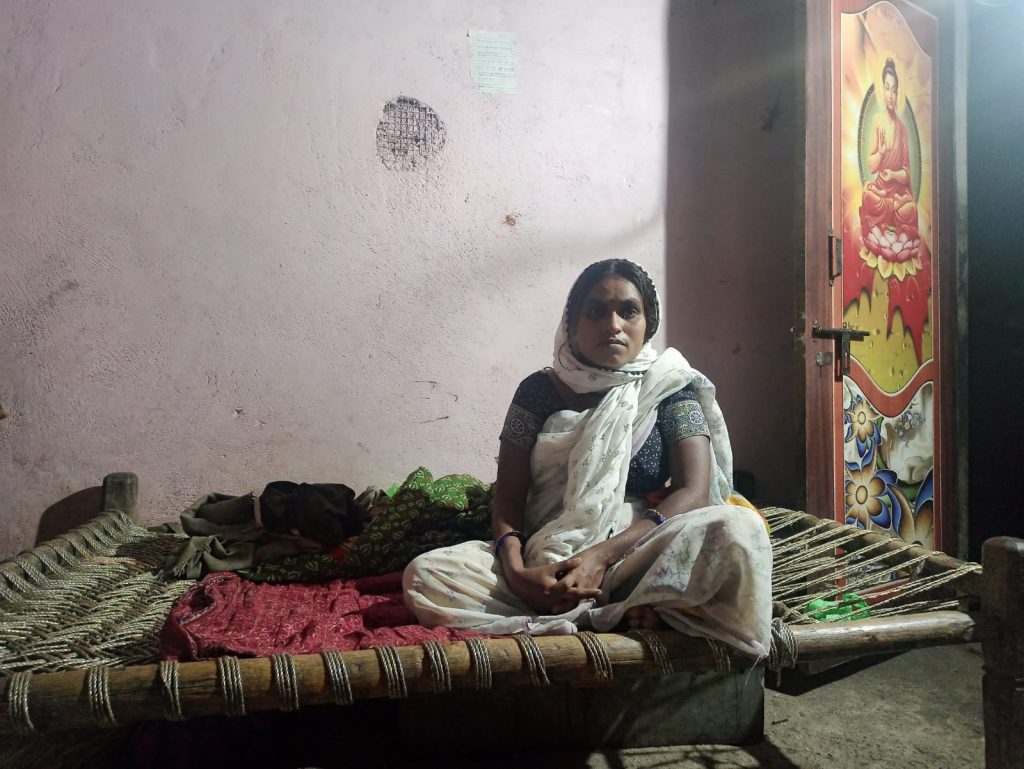
The Dandekar family doesn’t get subsidised food grains as part of the Public Distribution System (PDS) either. The only piece of land they have is less than an acre Gayran (common land under the Panchayats for cattle grazing) redistributed by the government, on which the family cultivates cotton with no fixed income.
35 % children under 5 years of age in Maharashtra are stunted, 26% wasted, 11% severely so and 36% are underweight according to data from National Family health survey – 5. 69% children between the ages of 6 to 59 months are anaemic, according to the NFHS data. 46% of pregnant women and 54% of women between 15-49 in Maharashtra are anaemic. This data captures indicators until 2019-2020. “The number of anaemic women must have been increased after covid-pandemic which affected the nutrition of women, specially those from the marginalised communities”, a senior statistician who has worked with International Institute of population sciences has told Behanbox.
“The relation between poverty, hunger and nutrition is complex and self-reinforcing. Poverty is the cause as well as effect of hunger and malnutrition. This relation between poverty, hunger and nutrition is getting more complex with structural changes in the economy. Higher market integration, urbanisation and migration have weakened the ties with farm & direct farm produce for a majority of the population. This has a severe impact on accessibility and affordability of nutritious fresh food”, Dr. Savita Kulkarni- Assistant Professor, Gokhale Institute of Politics and Economics.
“Sadly, still the government policies are growth-centric rather than distribution-centric”, she added.
Behanbox reached out to a few primary health care centres (PHC) to understand the underlying causes behind infant mortality, rising pre-term deliveries and very low birth weight of babies.
“These are high risk pregnancies where babies are very low weight. Pre-term deliveries are mostly high risk deliveries. Anaemia and hypertension along with other reasons increase the chances of high risk deliveries among rural women who come to our PHC ”, a doctor working at a PHC in Nanded district told Behanbox.
“While we provide iron, folic acid tablets and counselling for nutrition, neither the PHCs nor the district rural hospitals are equipped enough to perform critical deliveries and provide NICU for pre-term and very low birthweight babies. So we have to refer such patients to medical college hospitals like the SGMCH ”, added the doctor.
Inadequate Infrastructure
“They made me sleep on the floor. There was no bed. Can a seven months pregnant woman sleep on the floor without a mattress?,” asks Sunita Dandekar. We met Dandekar in her village Kharwad in Kalamnuri tehsil of Hingoli days after she lost her baby.
“Her saline drip was withdrawn right after the baby’s death. Does the mother not need saline once her baby has died? We brought medicines from outside, and did everything the doctor told us to do. They only gave us a bed after multiple requests” says Sahebrao Dandekar (33), Sunita’s husband who works as a daily wager and earns around 200 to 250 a day.
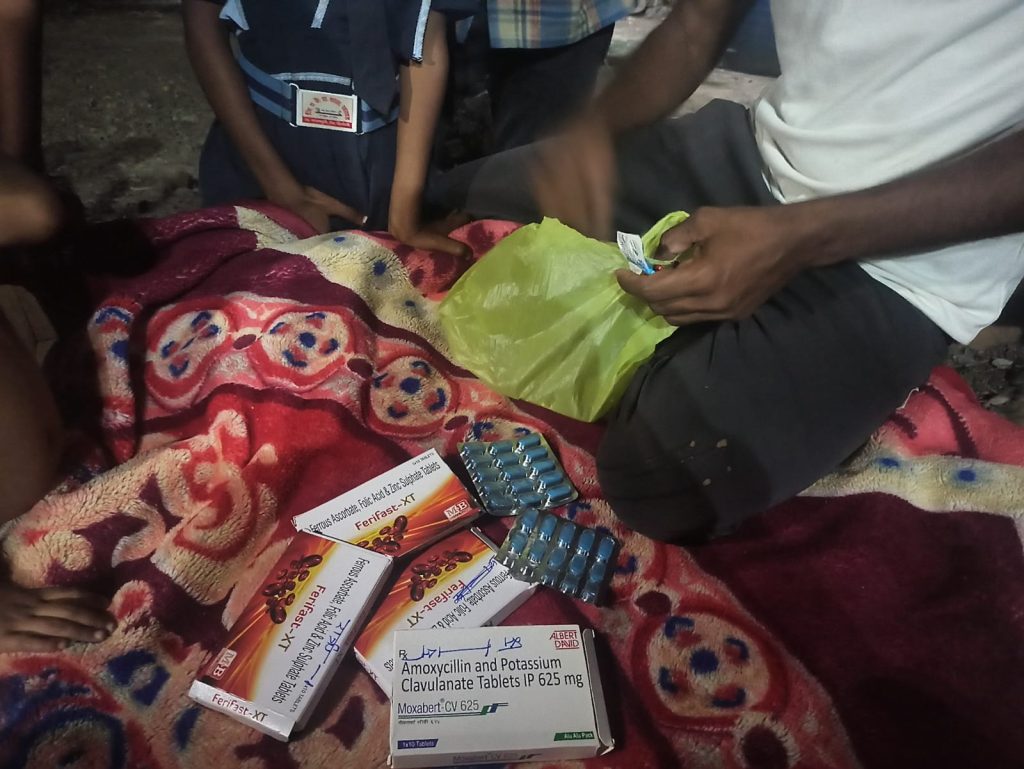
We also met Anjali Waghmare’s family in Kurula villege of Kandhar tehsil in Nanded, who recounted similar stories of hospital inadequacies. Waghmare, another Dalit woman, died last week soon after she lost her two days old baby boy at SCGMCH. Behanbox also spoke to at least a dozen patients at the medical store inside SCGMCH campus who said that they were asked to buy medicines from outside.
While the SGMCH initially cited multiple reasons for the deaths, from the admission of patients at a critical stage of illness to lack of infrastructure, medicine shortage, inadequate human resources, the hospital later denied.
As the public healthcare crisis unfolded in Maharashtra, Behanbox visited three public hospitals in Nanded– Gurugovindsingh Civil Hospital, Stree Rugnalaya Nanded (Women’s Hospital Nanded) and SCGMCH– to see the infrastructure in these public hospitals first hand. As we walked around the Gurugovindsingh Civil Hospital hospital in Vazirabad, the lack of basic infrastructure was hard to miss. There were no clean drinking water taps or filters. Upon asking about access to drinking water for patients, the hospital staff said that the bottled water cans that the hospital usually bought were delayed on the day.
Pigs roamed freely around in the hospital premises raising health and safety concerns for the patients seeking treatments at the district’s foremost public health facility. “We tried to remove these pigs from campus time and again, but they always come back”, Dr. Nilkanth Bhosarikar, Civil Surgeon at Guru Gobind Singhji civil hospital told Behanbox.
“The public health crisis that you see in Maharashtra is a multifaceted problem. Secondary hospitals like sub-district hospitals and the Civil hospital in Nanded do not have the capacity for specialist care for complicated conditions for newborn babies. Due to severe understaffing, patients who could be treated for ailments at the peripheral hospitals are directly referred to the Medical college hospital”, said Dr. Abhay Shukla,a senior public health activist associated with Jan Swasthya Abhiyan. Dr.Shukla was part of a fact-finding committee to look into the recent deaths in the state.
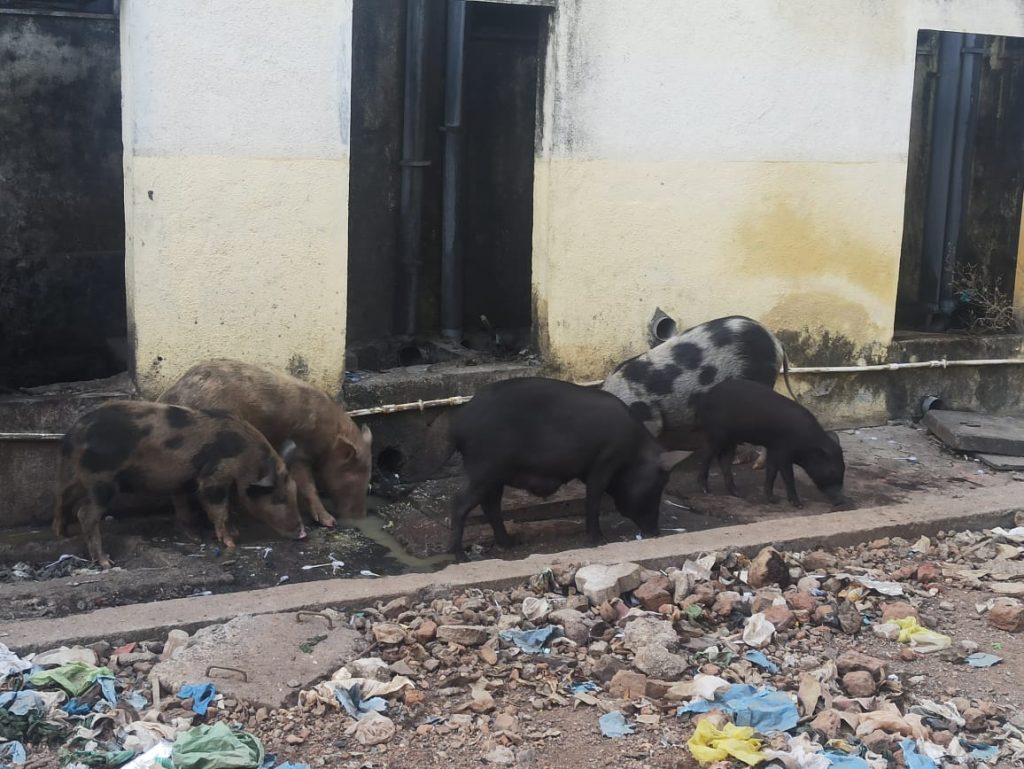
There are 19,695 vacant posts in the public health department in Maharashtra according to a statement made by the chief minister Eknath Shinde. He has announced that 34 super specialty hospitals and 25 civil hospitals would be set up in the state’s districts by 2034, reported the Times of India. He has also stated that the health expenditure would be doubled.
Behanbox has reached out to public health minister Tanaji Sawant seeking his response on the plans for additional budgetary allocations and reduction of the state’s health budget by 7% in 2023-24. We also sent out questions to Aditi Tatkare, women and child development minister on the rising maternal and infant deaths in the backdrop of the prevailing healthcare crisis. We are yet to receive any response from them. The copy will be updated when we do.
“The most important issue is ‘Vitamin A’ – Accountability, which must start at the top instead of making frontline health administrators the scapegoats”, said Dr.Shukla. “ We need a well-functioning public healthcare system. Upgrading health services and strengthening the public health system is not an impossible task but it needs political will, which seems to be currently lacking.” Dr. Shukla added.
[ This is our first report from Nanded on the public healthcare crisis looming over Maharashtra. Stay tuned as we bring you more over the next weeks from Aurangabad and other places.]
We believe everyone deserves equal access to accurate news. Support from our readers enables us to keep our journalism open and free for everyone, all over the world.

